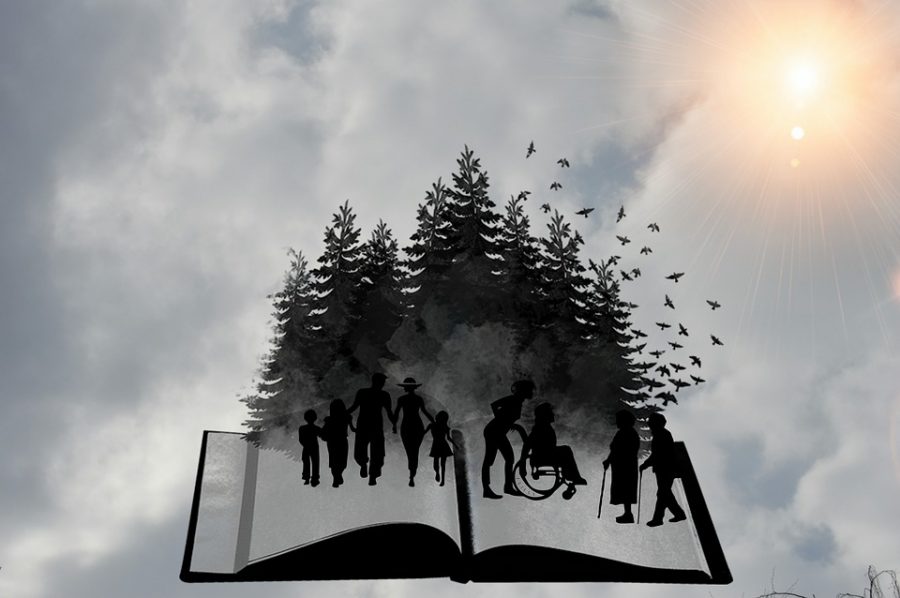An Incredibly Complex Narrative
February 15, 2018
I’m sitting down in my living room, watching a movie. It’s dramatic and romantic, and it doesn’t end happily. I let the plot pull me in, let myself feel the characters’ happiness and their pain. I feel it and I cry. Funny how I enjoy the way it makes me sad. You’d think that people would enjoy happy movies more, simple things full of joy. But that’s not the case. We think those movies are boring. We like movies with pain, and heartbreak, and loss. We like to feel something.
I’m sitting at my desk in history, watching a video. History can be very detached. All facts, numbers, dates. We focus on movements and revolutions, not the common people who fought them. Consequences are nothing but a list to be studied. We don’t look at how individuals were affected, we look at the bigger picture.
It’s so easy to forget that history is a story. An incredibly complex narrative. The author has no purpose in mind, yet it is full of meaning.
Our teacher tries to remedy this by showing us a video about the chapter we’re learning. That, or he just doesn’t feel like teaching. The world may never know. It’s about Joseph Stalin. It tells the story of his rule, interspersed with accounts of people who went through this time and survived unimaginable things.
It’s easier for us to not think about sad things, to avert our eyes, to be numb. In looking at the bigger picture, we shield ourselves to the pain of the individuals. Detaching and focusing on facts and numbers protects us from dwelling on all the suffering. But it’s harder to be indifferent when I can see this one woman’s face in front of me. She was a child when her father was taken away. He had been reading her a bedtime story. As he was being dragged away, he promised her he would be back to finish that story. How can I ignore the tears in this old woman’s eyes as she says that she is still waiting? I hear of the millions of meaningless deaths, see videos of people being shot. I sit there, shocked at how the world can be so cruel, so pointlessly dark.
I can now see the appeal in sad movies. People want to feel, sure, but only when they can easily turn those feelings off. We let ourselves feel the pain of these fictional characters knowing that we can shed that sadness as soon as the end credits start to roll. It’s so easy. Life isn’t like that. Your sorrows can’t be shed like an ugly coat. The pain and injustice in the world sits heavy on your heart, gets trapped in your chest. It doesn’t want to be ignored.
I sit at my desk in history. I learn about injustice, I learn about revolution. I learn about the the awful price paid in human lives for revolution. I learn about horrible things that happened, and I am reminded that horrible things are happening right now, whether they are right under my nose or happening millions of miles away.
I get up from my seat. Time to go to next period, time to move on. It’s possible. I can think of other things, let myself forget about what I’ve learned. But part of me wants to be sad because it’s not fair. I don’t deserve to move on, not when they can’t. And I don’t want to. I don’t want to look past peoples’ suffering.
I’m sitting here writing, thinking that that’s it. I shouldn’t look past peoples’ suffering. But I also shouldn’t let these thoughts consume me and fill me with dread. I will feel this sadness without ever letting it harden me or take away my hope. I will learn about history in the hopes that learning will teach us to stop making the same mistakes. I vow that when I am aware of injustice, I will never look away or take it sitting down.
